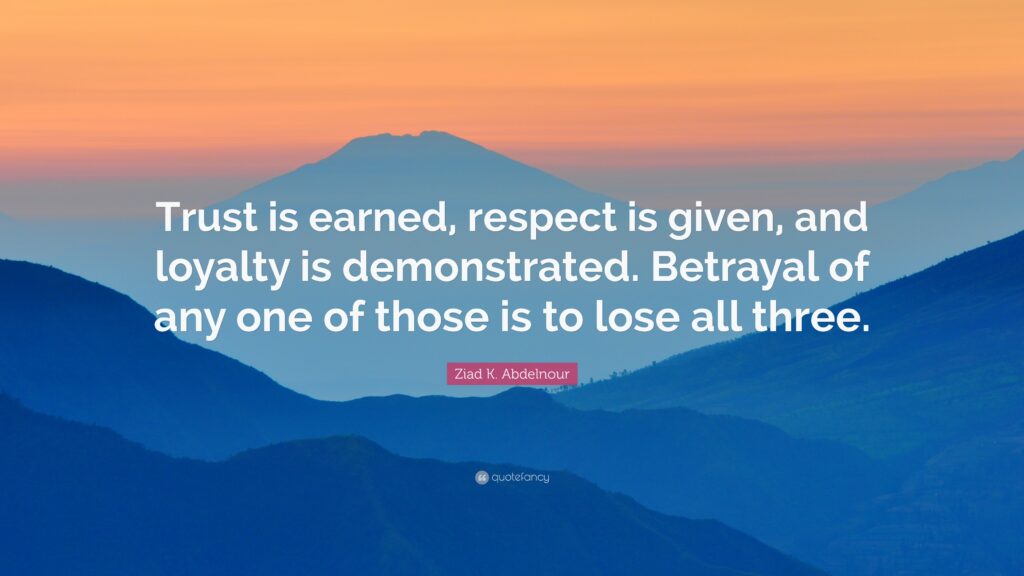In the face of the Great Resignation, where employees are seeking new opportunities and embracing career transitions at an unprecedented rate, building trust and loyalty with your workforce has become more critical than ever. As managers and senior leaders, your ability to retain top talent directly impacts organizational success. In this article, we will delve into practical strategies to cultivate trust, foster loyalty, and retain your valuable employees amidst fierce competition.

1. Embrace Transparent Communication:
Transparent communication is the cornerstone of building trust in any relationship, including the employee-employer dynamic. Leaders who prioritize open and honest communication create an environment where employees feel valued and respected. Take the example of Patagonia, an outdoor clothing company known for its commitment to transparency. Their CEO, Rose Marcario, regularly communicates with employees about company decisions, financial performance, and social initiatives. By being transparent, Patagonia has fostered a deep sense of trust and loyalty among its workforce.
2. Promote Autonomy and Empowerment:
Unconventional advice lies in granting employees a significant degree of autonomy and empowering them to make decisions that impact their work. A shining example of this approach is Atlassian, a software company that encourages a 20% unstructured time policy. This policy allows employees to spend a portion of their work hours on self-directed projects. By providing autonomy, Atlassian fosters a culture of innovation, fuels employee engagement and retains top talent by nurturing a sense of ownership and fulfillment.
3. Create a Culture of Psychological Safety:
Psychological safety is the belief that one can express ideas, take risks, and be vulnerable without fear of retribution or judgment. It is a vital ingredient in building trust and loyalty within a team. Google, known for its emphasis on psychological safety, discovered through its Project Aristotle that teams with higher psychological safety perform better. Leaders can cultivate psychological safety by encouraging diverse perspectives, active listening, and appreciating the contributions of every team member. By fostering an environment where individuals feel safe to express themselves, you retain top talent who values collaboration and innovation.
4. Foster Personal and Professional Growth:
A less conventional approach involves investing in the personal and professional growth of your employees, regardless of the possibility that they might surpass their current positions. Adobe, a global software company, implemented a program called “Kickbox,” where employees receive funding to explore their own ideas outside of their assigned tasks. By nurturing their employees’ passions, Adobe not only retains talent but also benefits from the innovation and creativity that arise from these side projects.
5. Prioritize Work-Life Integration:
In today’s hyper-connected world, achieving work-life balance has become increasingly challenging. However, embracing work-life integration can help retain top talent. Buffer, a social media management company, has adopted a fully remote and flexible work model. By prioritizing work-life integration, Buffer empowers its employees to maintain a healthy work-life blend, resulting in increased loyalty and employee satisfaction.
6. Champion Diversity, Equity, and Inclusion:
Creating an inclusive work environment is not only the right thing to do but also a powerful driver for employee loyalty and retention. Leaders must actively champion diversity, equity, and inclusion by implementing inclusive hiring practices, fostering diverse perspectives, and providing equal growth opportunities. Salesforce, a leading CRM platform, prioritizes diversity and has set bold targets for gender and racial representation within its workforce. By valuing diversity and cultivating an inclusive culture, organizations retain top talent who feel valued and supported.
Conclusion:
In the era of the Great Resignation, nurturing trust and loyalty has become a vital focus for managers and senior leaders. By embracing transparent communication, promoting autonomy, fostering psychological safety, prioritizing personal and professional growth, embracing work-life integration, and championing diversity and inclusion, you can create an environment that retains top talent and fuels organizational success.
Remember, loyalty is earned through genuine care, support, and a commitment to the holistic well-being of your employees.
